Although Siberia is associated with the suffering of the Polish nation, many of our countrymen found their happiness there. There they obtained honor, respect and money.
A huge group of Polish exiles found themselves in Siberia after the November Uprising. Most often, the punishment imposed on them consisted of living outside the Urals for several or several years with the possibility of taking up a job.
In Siberia, there was a shortage of teachers of all subjects, so our compatriots gave private music lessons and taught children in wealthy families . Although Poles, as political criminals, were forbidden to teach in state schools, the overwhelming lack of teachers made the civil and educational authorities turn a blind eye to it. One of the exiles - Hipolit Suchoprocki - even became the director of the People's Schools in the Tomsk province.
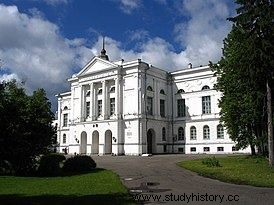
University of Tomsk, contemporary view
Only some of the exiles were sentenced to hard work. However, even in this case educated Poles - at the request of local notables - were released from serving their sentence and worked as officials in local institutions , gold mines and large companies.
According to prof. Wiktorii Śliwowskiej, Poles literally "fell from heaven" to the inhabitants of Siberia. Therefore, when after the amnesty of 1856, our countrymen were able to return to their homeland, they were mentioned with great respect, and the newspaper "Vostocznaya Sibir" repeatedly expressed regret for their departure.
Scientists
When the University of Tomsk began its activity in 1888, Poles were among its staff. In the first years of the university's existence, its rector was professor Aleksander Dogiel. Later, he was the dean of the Faculty of Medicine. The Pole gave lectures on histology and embryology. He devoted a lot of time and attention to building the cell; he taught students the methods of working with a microscope. He studied the histological structure of the nervous system, thanks to which he became one of the founders of neurohistology.
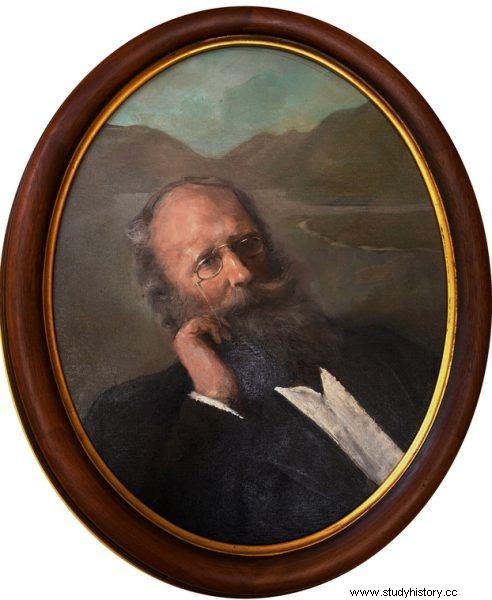
Stanisław Szczepan Zaleski.
Stanisław Szczepan Zaleski, a popular lecturer, was the professor of general and medical chemistry. Our compatriot was also interested in the physiology of Siberia, gaining the reputation of "the most prominent balneologists in Russia" and making the first chemical, geological and climatic studies of many Siberian lakes. Zaleski also conducted research in the Caucasus, where he discovered valuable sources of healing waters in Kislovodsk, Krasnaya Polyana and Borjomi. He published the results of his research in Polish, Russian and French.
Explorers and explorers
To Polish naturalists and geologists - the January deportees - Russia owes descriptions of the geographical environment of Siberia, research on Lake Baikal and the discovery of many species of flora and fauna. Benedykt Dybowski was a pioneer in exploring these areas. The Pole conducted a stationary study of Lake Baikal, thanks to which he refuted the myth about the poverty of his animal world. He collected specimens of invertebrates the existence of which zoologists had no idea. He visited Primorsky Krai and discovered a species of deer there, which was named after him many years later. The name of Dybowski is also borne by the peak of one of the mountains on the Commander Islands.
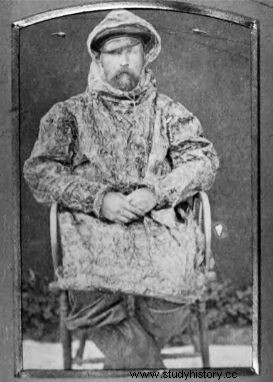
Benedykt Dybowski in exile (around 1866–1868)
Aleksander Czekanowski organized three expeditions along the great Siberian rivers, incl. Yenisei, Lena and Tunguski. He proved that the coal seams in the area of Lake Baikal were very rejuvenated - it turned out that the coal formation there comes from the Jurassic period, not the Carboniferous, as it was previously believed. This discovery was awarded the gold medal of the Russian Geographical Society, which was a token of the highest recognition by local scientists. In 1874 Czekanowski published the "Geological Monograph of the Irkutsk Governorate", for which he received an award in Paris. Currently, the name of the Pole is, among others, several species of flora and fauna, mountains in Yakutia and a settlement located in the taiga.
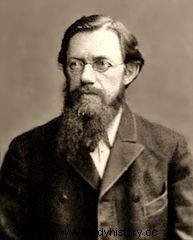
Jan Czerski
Jan Czerski has penetrated the Japanese governorate , where he discovered tectonic complications in the mountains, the presence of extinct volcanoes and young vertical movements of the earth's crust. He examined the geological structure of Lake Baikal and made a detailed, compact and uniform geological map of the region, which - according to Russian scientists - "has not lost its value today".
In 1885, Czerski became the head of the Imperial Geological Museum in St. Petersburg and was given the opportunity to publish the results of his Siberian research, becoming one of the most famous geologists in the world . In recognition of the merits of the Pole, his name was given, inter alia, to a city in Yakutia, a mountain range in the Zabaikalsky district, a mountain range in North Yakutia on the upper bank of Kolyma, a mountain peak on the northwest bank of Lake Baikal, several species of plants and glaciers.
In local government (and not only)
Our compatriots held key positions in the Siberian administration. Ludwik Wróblewski was the mayor, first in Turuchańsk and then in Kuznett, Antoni Raubo - in Barnaul, Józef Wiesiołowski and Franciszek Sawicki - in Bijsk, and Bolesław Szostakowicz - in Irkutsk and Omsk.
An even more prominent position - the governor of Tobolsk - was occupied by Wiktor Arcimowicz (1820-1893) in the years 1854-1858. The Pole found the governorate in a deplorable state. Due to the distance from the capital, local officials felt with impunity:they committed many abuses, took bribes and put off running errands.
Arcimowicz brought the most corrupt subordinates to court, dealt with outstanding problems, took care of the condition of hospitals and schools, and the development of the area. He initiated the publishing of the local newspaper "Tobolskije gubernskije viedomosti".
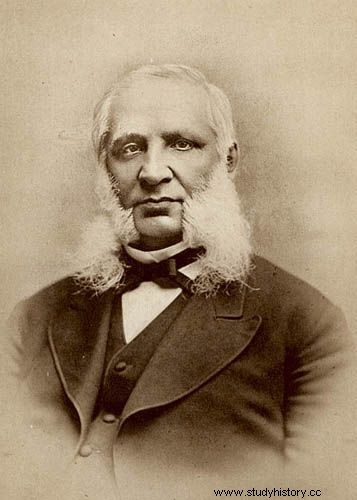
Wiktor Arcimowicz
But the most spectacular career was made by Aleksander Despot-Zenowicz (1828-1897). His path to the top began in 1852 with the nomination of the customs commissioner in the city of Kiachta. For the fight against fraud and corruption and the detection of multi-million abuses, the Pole received personal thanks from the local mayor . Over time, the central authorities also appreciated our compatriot, appointing him a member of the negotiating group for the demarcation of the Russian-Chinese border.
On January 15, 1858, a Pole became the mayor of Kachta, where he opened a girls' gymnasium, a public library, a printing house publishing a local newspaper, and fought against illegal trade and smuggling. In 1862 he was summoned to Saint Petersburg to meet Alexander II. The monarch offered him the position of the governor of Tobolsk and said goodbye to him with the words "Drive! I trust you and bring order there! ”.
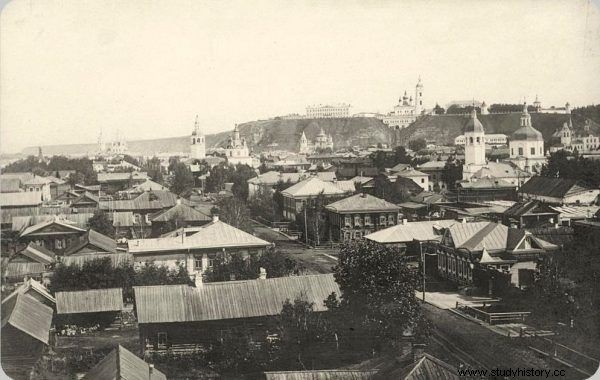
Tobolsk - a city ruled by Despot-Zenowicz
Despot-Zenowicz expanded the school network, created an association to help impotent students, built a hospital for the poor, introduced vocational training for officials . He fought corruption and released bribes. In 1866, the Pole was entrusted with a responsible position in the Ministry of the Interior, where he dealt with the affairs of Asian Russia.
The former governor remained in the grateful memory of the inhabitants of the Tobol Governorate, who in 1871 gave him the name of a new village. The town is called Despotzinowka and is a combination of the two-part surnames of the Tobol governor - Despot and Zen (owicz). An interesting fact is that even in the Soviet times, when everything related to the tsarist regime was erased, the name of the village did not change.
Bibliography:
- Poles in science, farm and administration in Siberia in the nineteenth and early twentieth centuries. Wroclaw:Silesia, 2007
- Ciechanowicz J., In the vastness of Eurasia. Rzeszów:Publishing House of the Higher Pedagogical School, 1997
- Masiarz W., Poles in economic activity in Siberia in the 19th-20th centuries, [in] "Polish explorers, researchers and explorers of Siberia and Central Asia", Pełczyński G. (ed.). Wrocław:University of Wrocław Publishing House, 2018, pp. 211-244
- Ханевич В. А., К истории польской колонии Томска конца XIX и начала XX века [in] „Поляки в Сибири. Поляки о Сибири:материалы I Междунар. науч. конф. (Томск, 3-5 июня 2012 г.) ”. -Tomsk, 2012, pp. 119-125
